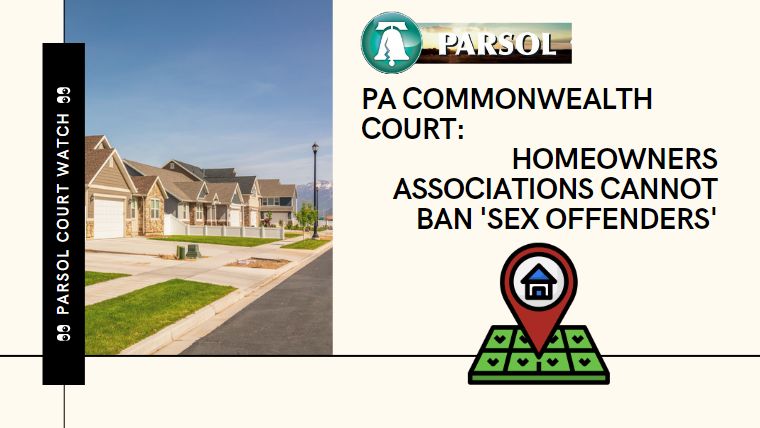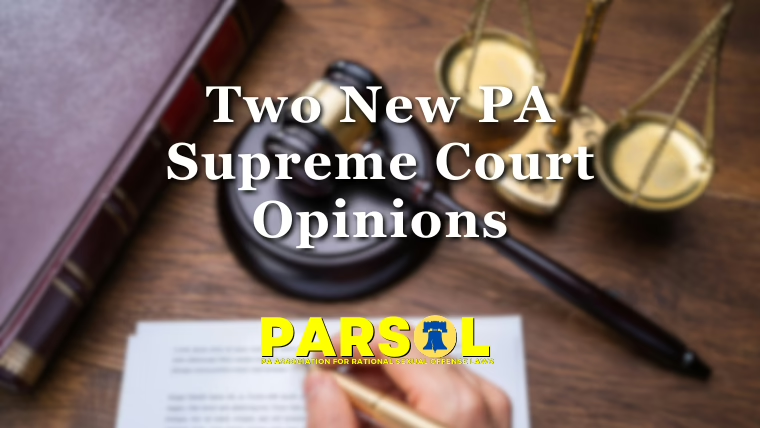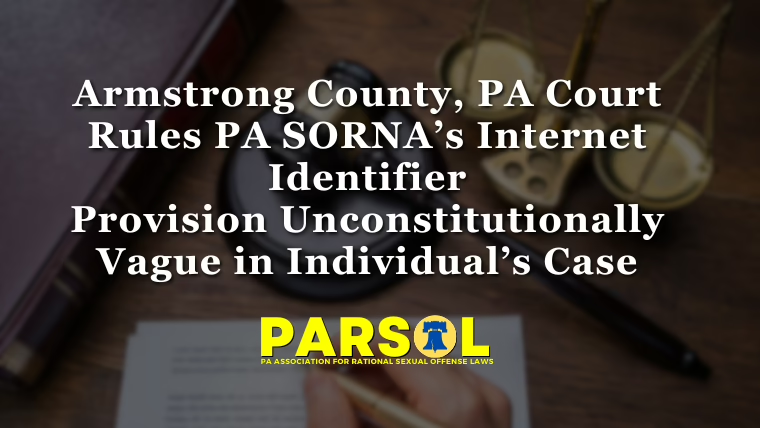STROUDSBURG, Pa. – PARSOL is praising a ruling by the Pennsylvania Commonwealth Court that states that a private housing development or homeowners association cannot ban persons forced to register as a ‘sex offender’ under the state’s SORNA / Megan’s Law from living within their community.
Ruling in a Monroe County case, the state Commonwealth Court said a 2016 restrictive covenant in the Pocono Mountains housing community at Lake Naomi (Tobyhanna Township), runs afoul of a state regulations that control where registered sex offenders can reside.
The case has statewide implications because it marks the first time a state appellate court has addressed whether private homeowner communities must abide by state regulations that govern municipalities relating to sex offender residency.
Following a nonjury trial, a Monroe County judge voided the association’s covenant based largely on the state Supreme Court’s ruling in the case of Charles Fross vs. Allegheny County.
The Commonwealth Court upheld the ruling of the Court of Common Pleas of Monroe County stating:
“While the residents of Lake Naomi want to preclude convicted sex offenders from living in their community, we cannot allow the Associations to enforce a residency restriction that, in practice, contravenes the goals and purposes of SORNA and the Sentencing and Parole Codes. As the Trial Court noted, the Supreme Court in Fross found that the best way to protect children and society was to allow the safeguards built into [SORNA] to be employed.
[The Commonwealth Court holds] that the Supreme Court’s ruling in Fross established a dominant public policy that local counties and municipalities cannot impose sex offender residency restrictions due to Pennsylvania’s statewide legislative scheme governing the release of convicted sex offenders. We further hold that this public policy necessarily extends to private residential communities such as Lake Naomi.”
It is unclear as of this post (11/1/2022 at 12:30 p.m.) if the Lake Naomi association plans to appeal the decision.
FAQs
Q: Does this apply to other communities with a HOA? What about trailer parks?
A: The Commonwealth Court upheld a county judge’s opinion that applied the Supreme Court of Pennsylvania (SCOPA) ruling in Charles Fross vs. Allegheny County in this individual case. If a trailer park falls under the legal definition of a “private community” then the Lake Naomi case states that the Fross rules apply.
However, it would be unwise to make assumptions in situations with other variables apply, such as how communities are defined as “private.” PARSOL provides no legal counsel and recommends checking with an attorney.
Q: Has this decision been appealed? Will it be?
A: Because the Commonwealth Court which ruled in this case is not the highest appellate court in Pennsylvania, it is possible it may be appealed to SCOPA.
Learn about PA’s Appellate Court System: https://youtu.be/7IAGSi2d9Ts
Q: Is this a statewide ruling?
A: Yes. The Commonwealth Court is a statewide appellate court and ruled that “We further hold that this public policy necessarily extends to private residential communities such as Lake Naomi.”




